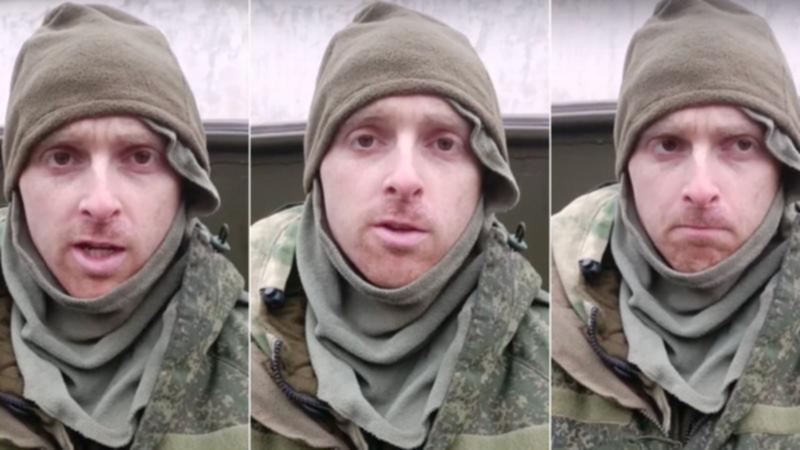Oscar Jenkins imprisoned: Kylie Moore-Gilbert says situation highlights need for special Australian envoy role
The call from Kylie Moore-Gilbert, who was detained by Iran for three years, came after the Australian teacher was jailed for fighting alongside Ukraine.

The Kremlin’s sentencing of Melbourne schoolteacher Oscar Jenkins to 13 years’ imprisonment following Russia’s “sham trial” has reignited calls for a designated special envoy focused on rescuing unjustly detained Australians.
Kylie Moore-Gilbert says such a role, as recommended by a senate inquiry into the wrongful detention of Australian citizens overseas last year, could “really help Oscar”.
It comes as international law experts say the Australian Government has limited options available to plead Mr Jenkins’ case, but could consider prisoner swaps, after the 33-year-old was sentenced to a maximum security penal colony for fighting alongside Ukrainian forces in the Donbas region as a “mercenary”.
Sign up to The Nightly's newsletters.
Get the first look at the digital newspaper, curated daily stories and breaking headlines delivered to your inbox.
By continuing you agree to our Terms and Privacy Policy.Moscow’s prosecution alleged he had signed a contract with the Ukrainian Defence Ministry to fight against the Russian army for between 600,000 and 800,000 roubles ($11,000 and $15,000) a month.
The Australian Government has condemned his sentencing and is calling on Russia to treat him as a prisoner of war - a prospect international law expert Donald Rothwell considers unlikely.
“Russia has, fairly consistently, on capturing members of the Ukrainian Foreign Legion, who by definition are not Ukrainian, has treated those persons as mercenaries and not prosecuted them,” he told The Nightly.
“And secondly, we now have of course a decision by what purports to be a Russian court. So it’s very unlikely that Russia would seek to reverse its policy position on foreign fighters fighting for Ukraine, and to now overturn the decision of this presumptive Russian court.”
Prime Minister Anthony Albanese raised the matter with Ukrainian President Volodymyr Zelenskyy on the sidelines of the Pope’s inauguration mass in Rome on Sunday .
“The Russian so-called courts have brought down an outrageous ruling, and we continue to seek his freedom and his return to Australia, and we thank you for the assistance on that,” Mr Albanese told Mr Zelenskyy.
At home, Deputy Prime Minister Richard Marles said the Government was “deeply opposed to the sentence”.
“He should be treated as a prisoner of war with obviously all the protections that go along with that under international humanitarian law. That’s what we expect Russia to apply here and we stand utterly opposed to the sentence that Russia have put in place and we expect them to maintain their obligations towards Oscar Jenkins as a prisoner of war,” he said.
Ukrainian ambassador to Australia Vasyl Myroshnychenko said Mr Jenkins should be treated as a POW, but it ultimately was dependent on the Russian Government.
Dr Rothwell, an international law professor at the Australian National University, said being determined a POW would afford Mr Jenkins’ a greater prospect of release via exchange.
Pointing to the agreement forged in Turkiye last week for the swap of 1000 prisoners of war, Dr Rothwell said if Mr Jenkins were classified as a POW he could have been part of that pool, or future pools.
Mr Myroshnychenko said Ukraine was now deciding who would be on their list, and “it is up to Russians whether they include Oscar or not” on their list.
“For now, it is up to Russia,” he said.
Dr Moore-Gilbert, director of Australian Wrongful and Arbitrary Detention Alliance, said she was “devastated” for Mr Jenkins’ and his family, and the alliance now considers him to be wrongly detained.

Dr Moore-Gilbert, who herself was wrongly detained by Iran for three years until she was freed in a prisoner swap in 2020, said Mr Jenkins’ sentencing reinforces the need for a designated Government Special Envoy for Wrongfully Detained Australians, one of 18 recommendations made by a Senate inquiry last year and a commitment by the Coalition in the lead-up to the election.
“There would be one point of contact who could potentially go and negotiate with the Russians, and be empowered directly by the Prime Minister to have the tools at his or her disposal to do that,” Dr Moore-Gilbert told The Nightly.
The committee recommended that the office of such a special envoy would be resourced with the expertise to improve the Government’s ability to provide specialised and dedicated case management, increase support for families, coordination, a greater level of ongoing support for victims of wrongful detention post-release, and ensure there is a proper process for reintegrating such a person.
The Government did not release its response to the inquiry report before the election, but Dr Moore-Gilbert is hopeful they do soon.
Foreign Affairs Minister Penny Wong was contacted for comment.
In the interim, Dr Rothwell said there were a “number of options” available to try and free Mr Jenkins.
The first he said is an unlikely hypothetical, but Mr Jenkins could possibly be subject to the European transfer arrangement which both Australia and Russia are party to.
The second, and more likely, is “some sort of bespoke arrangement”.
“Ever since Jenkins was detained before Christmas, there has been various Russian surrogates out there making suggestions that Jenkins could be subject to a prisoner swap deal, which is much more of a political negotiated outcome,” he said.
“There are some Russians being held in Australia who, it’s been suggested, could be subject of some sort of prisoner swap deal, but that obviously depends upon political and diplomatic circumstances, and how much effort both sides want to put into trying to achieve that sort of outcome.”
It’s been suggested that Mr Jenkins could be swapped for Australian soldier Kira Korolev and her husband Igor, charged with preparing to carry out an act of espionage.
Mr Myroshnychenko said he couldn’t speculate on whether such a prisoner swap would be, but that Ukraine and Australia were “doing everything we can”.

